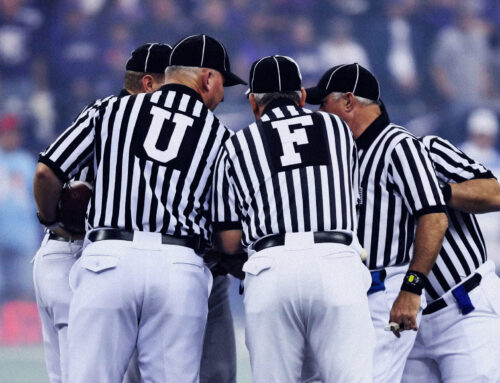Mentoring young referees at a youth sports organization is an essential aspect of developing the next generation of referees. Referees are a critical part of any sport, and it’s important to ensure that they have the requisite skills and experience to make fair and accurate calls. Establishing a stable mentorship program at your organization can help young referees to further develop their skills, knowledge, and confidence while also helping to ensure that they are following the rules and guidelines of the sport.

First and foremost, mentoring can help young referees gain a deeper understanding of the rules and regulations of the sport. This is particularly important for younger referees who may not have had as much experience or knowledge of the sport. A mentor can help to explain the rules in a clear and concise manner, provide examples of how the rules apply in different situations, and answer any questions that the young referee may have.
In addition to helping young referees understand the rules of the sport, mentoring can also help build confidence in lesser experienced officials. Refereeing can be a challenging and sometimes stressful experience, particularly for younger referees who may be new to the role. By providing guidance and support, mentors can help young referees to feel more confident in their ability to make fair and accurate calls, which can ultimately lead to a more positive and enjoyable experience for everyone involved.
Another benefit of mentoring young referees is that it can help to improve their communication skills. Effective communication is essential for referees in any sport, as they need to be able to clearly and confidently communicate with players, coaches, and other officials. Mentors can provide guidance on communicating effectively, including strategies for diffusing tense situations and dealing with challenging individuals.
Mentoring can also help young referees to develop their decision-making skills. Refereeing often requires split-second decisions, and it’s essential that young referees are able to make accurate and fair calls under pressure. A mentor can help young referees develop their decision-making skills by providing feedback and guidance on their calls and helping them analyze different situations to make better decisions in the future.

Finally, mentoring can help young referees to develop a love for the sport and a desire to continue refereeing in the future. By providing support, guidance, and encouragement, mentors can help young referees to feel valued and appreciated for their contributions to the sport. This can ultimately lead to a more positive experience for everyone involved, as young referees are more likely to be passionate and committed to their role when they feel supported and encouraged.





